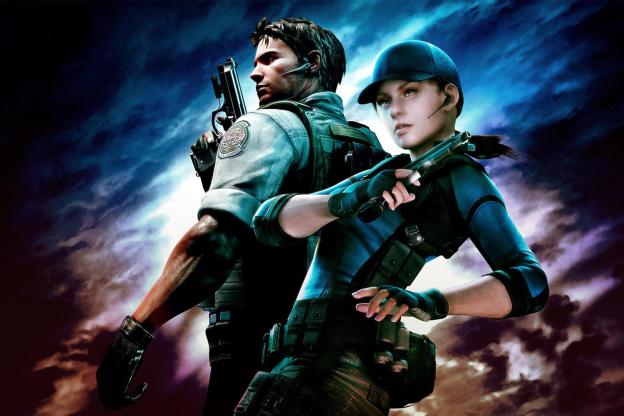
Jetsetter knows that all things must pass. Digital Trends’ weekly column devoted to all those games made, and game developers working outside the United States, knows all too well that a game industry dominated by Japanese game design could never last forever. From the NES to the PlayStation 2, Japanese game design was king, but in the past decade trends have shifted to the West. That’s fine. What Jetsetter can’t condone and get comfortable with though, is when game makers abroad can’t recognize the same thing. A prime example of this is Capcom, who just won’t let rest those things that need to rest.
Jetsetter has written a number of times recently about Capcom’s poor treatment of its legacy. Making new entries in classic series, and then restricting them purely to Japanese, Korean, and Chinese mobile phones like it’s done with Breath of Fire 6 is deeply frustrating. The future of the Resident Evil series is what’s giving us pause this week.
In an article posted on Capcom’s developer relations website this week, the company discusses the 17-year history of the Resident Evil series. “The Secret of Success,” as the article is titled, discussed releasing a very different sort of game back in the mid-’90s, and being willing to give it a “full model change” later on. Resident Evil 4, released in 2005, was the full model change, transforming the slow-paced horror series into a more action-based roller coaster. That’s remained the basis for the series through Resident Evil 6, 2012’s notorious let down.
Nearly ten years on from Resident Evil 4, Capcom believe that it’s time for another full model change in the series. The greatest evidence for this, according to the company, is the average age of people playing Resident Evil games. “The longevity of the Resident Evil title also comes with problems,” reads the article, “The main user group is now in their late-30s to 40s, and the average age is also going up as the series goes on with an increasing possibility that some percentage of the existing users will outgrow games altogether. Therefore, there is a constant need to gain new users.”
This isn’t the first time that Capcom has said it needs to capture a new, younger audience for Resident Evil. It was that thinking that led the series to focus on cooperative multiplayer in Resident Evil 5 and 6. It’s also what led Capcom to start handing the series over to non-Japanese developers as it did with the abysmal multiplayer shooter Resident Evil: Operation Raccoon City. That game, in addition to being a jumble of technical failures, lost the distinct cultural flavor that made the series a success in the first place.
There’s a reason this article appeared on Capcom’s investor relations website rather than its community pages. Resident Evil is a vital source of Capcom’s historical profitability, and its shareholders are no doubt anxious to see those profits return after Resident Evil 6 failed to meet its sales projections. In the aftermath of that disappointment, Capcom has also said it’s refocusing on its internal development at home in Japan. Capcom is facing a situation rife with conflict. On the one hand, it’s showing foresight by recognizing that the company’s identity and strength as a Japanese developer is vital to its success. On the other hand, it believes that a younger audience is necessary to keep the Resident Evil series growing in profitability.
There is another route Capcom could take, and it’s one that could lead to better long term health for the company and the Resident Evil series. The solution is this: retire Resident Evil. Not permanently. Just take the series out of the development cycle. As much as this may make investors uneasy, it will have multiple long term benefits. For starters, it will give the veteran developers at Capcom’s Japanese studios a chance to recharge their creative juices. It will also drive younger developers to come up with strange new ideas, much like the young Shinji Mikami did when he came up with Resident Evil in the first place.
It will also allow the brand to rejuvenate after years of overexposure. By letting the series rest for even just eight or ten years, Capcom would allow those older gamers that make up the core audience to build nostalgia for the series, and younger gamers will have a chance to discover the old games as they do with older books, movies, and albums. Then when it comes time to finally bring the series back, either with Resident Evil 7 or a reboot, the release will be an event, exciting new and old players alike. Nintendo saw great success by leaving Metroid dormant for eight years between Super Metroid and Metroid Prime. Capcom could do the same and reinvigorate itself as one of Japan’s most potent game making voices.


